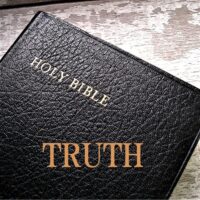 “The church’s role is not to usurp the authority of the family or the government but to uphold biblical standards, to disciple believers, and to bear witness to the truth. In doing so, it supports families with teaching and counseling, and it speaks prophetically to governments, calling them to align with God’s moral order.”
“The church’s role is not to usurp the authority of the family or the government but to uphold biblical standards, to disciple believers, and to bear witness to the truth. In doing so, it supports families with teaching and counseling, and it speaks prophetically to governments, calling them to align with God’s moral order.”
(Keith Foskey – Clear Truth Media) Recently, I taught a course on biblical law and ethics, where we explored a wide range of topics—sexuality, politics, economics, and even just war theory. A key question that emerged during our discussions was this: How do we move from theory to practice when it comes to ethics and morality? More specifically, what role should the church play in applying biblical ethics to the broader culture?
It’s one thing to study Scripture and affirm what is right and good—but once we’ve done that, what’s next? This is where the rubber meets the road.
One historical case study that sheds light on this question is the rise of the Moral Majority in 1979. This movement offers insight into how some Christians have attempted to apply biblical principles through political action. But how effective was it? What impact did it leave? And what obstacles did it face? Examining the Moral Majority’s legacy can help us better understand the strengths—and limitations—of such cultural engagement.
The conservative voice and Christian content are being silenced more and more. CRN offers a lifeline to conservative people of faith who are disgusted with social media and the leftmedia for failing to report, even blocking, important news stories that don’t comport with the far left’s narrative. We urge you to sign up to receive our FREE need to read articles. NO ADS! NO VIDEOS! NO POPUPS! JUST STRAIGHT NEWS.